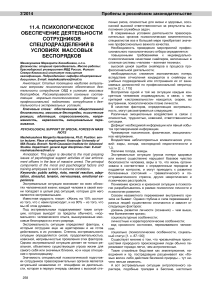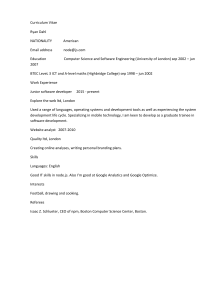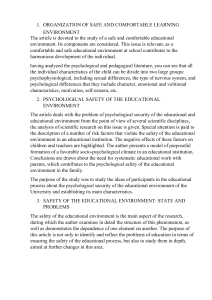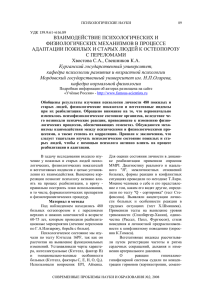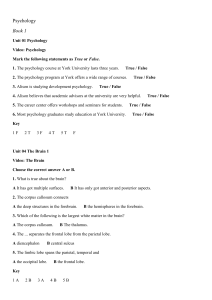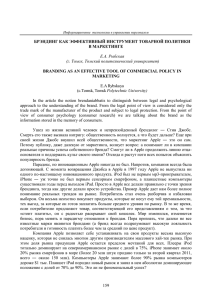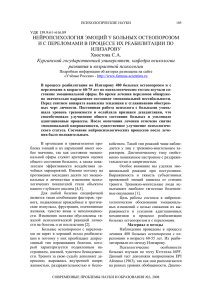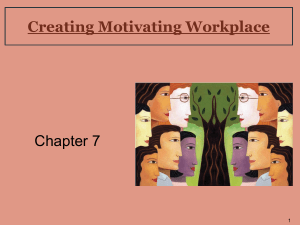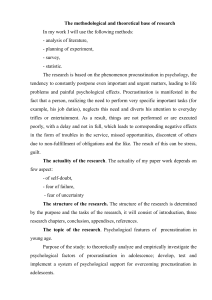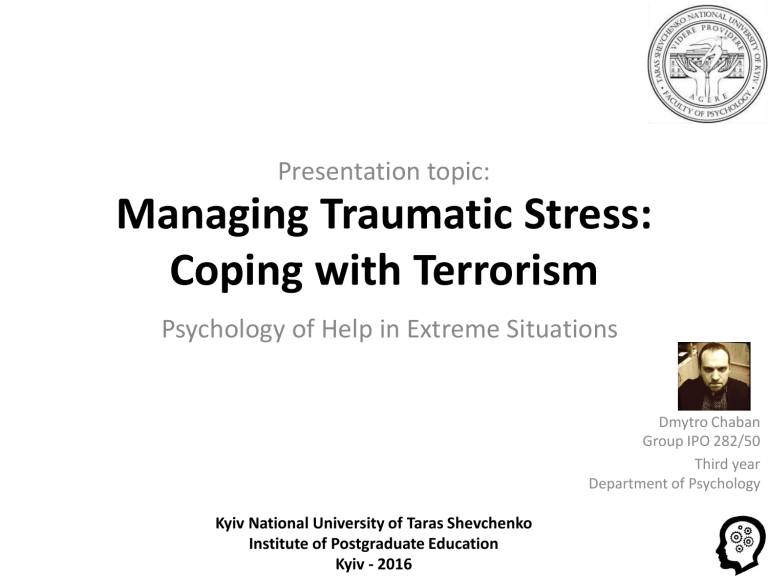
Presentation topic: Managing Traumatic Stress: Coping with Terrorism Psychology of Help in Extreme Situations Dmytro Chaban Group IPO 282/50 Third year Department of Psychology Kyiv National University of Taras Shevchenko Institute of Postgraduate Education Kyiv - 2016 Contents 1. Definition 2. Terrorism features 3. Terrorism targets 4. After an attack 5. Coping with trauma 6. Helping children TERRORISM is any act designed to cause terror Source: Wikipedia.org AN ACT OF TERRORISM is • random • unprovoked • intentional • often targeted at defenseless citizens i.e. IRRATIONAL Source: American Psychological Association, Psychology Help Center, Rona M. Fields, PhD, Sep 2001 TERRORISM WORKS BY • instilling fear in people • instilling helplessness • holding a society or government hostage by fear of destruction or harm • resulting in feeling of vulnerability • resulting in grief Source: American Psychological Association, Psychology Help Center, Rona M. Fields, PhD, Sep 2001 WHO IS AFFECTED? • Survivors of past traumatic events. These individuals may have a heightened sense of vulnerability. • People who personally witnessed or were victims of the terrorist attack • People who experience traumatization from learning of relatives, friends and acquaintances who were subject to the violence, or from exposure to repeated media accounts of the trauma Source: American Psychological Association, Psychology Help Center, Rona M. Fields, PhD, Sep 2001 WHAT YOU MAY EXPERIENCE AFTER A TERRORIST ATTACK? • Recurring thoughts of the incident • Becoming afraid of everything, not leaving the house or isolating yourself • Stopping usual functioning, no longer maintaining daily routines • Survivor guilt — "Why did I survive? I should have done smth more" • Tremendous sense of loss • Reluctance to express your feelings, losing a sense of control over your life Source: American Psychological Association, Psychology Help Center, Rona M. Fields, PhD, Sep 2001 HOW TO COPE WITH THE TRAUMA? • Identify the feelings that you may be experiencing. Understand that your feelings are a normal reaction to an abnormal situation. • Remember that you have overcome adversity and trauma in the past. Try to remember what you did that helped you overcome the fear and helplessness in that situation. • Talk to others about your fears. It's OK to ask for help. • Make efforts to maintain your usual routine. Source: American Psychological Association, Psychology Help Center, Rona M. Fields, PhD, Sep 2001 HOW TO COPE WITH THE TRAUMA? • • Think positively. Realize that things will get better. Be realistic about the time it takes to feel better. Recognize that the nature of terrorist attacks creates fear and uncertainty about the future. Continue to do the things in your life that you enjoy. Don't get preoccupied with the things you cannot control to the extent that they prevent you from living your normal life. • Know the actions our government is taking to combat terrorism and restore safety and security. Recognize that trained officials throughout the country are mobilized to prevent, prepare for and respond to terrorist attacks. • Limit exposure to media coverage. Source: American Psychological Association, Psychology Help Center, Rona M. Fields, PhD, Sep 2001 HELPING CHILDREN COPE • Encourage children to say how they are feeling about the event. • Ask children what they have seen, heard or experienced. • Assure children that their parents are taking care of them and will continue to help them deal with anything that makes them feel afraid. • Help children recognize when they have shown courage in meeting a new scary situation and accomplished a goal despite hardship or barriers. Instill a sense of empowerment. • Let children know that institutions of democracy are still in place and our government is intact. (It can also be helpful for adults to realize this.) • Know that it is possible for children to experience vicariously the traumatization from the terrorist attack (e.g. watching TV coverage, overhearing adult conversations). Source: American Psychological Association, Psychology Help Center, Rona M. Fields, PhD, Sep 2001 OTHERWISE – VISIT A MENTAL HEALTH SPECIALIST Source: American Psychological Association, Psychology Help Center, Rona M. Fields, PhD, Sep 2001 Sources and Literature 1. Malkina-Pykh I.G. Pshychology of Extreme Situations, - Moscow: Eksmo, 2005. – 960 p. 2. American Psychological Association, Psychology Help Center, Rona M. Fields, PhD, Sep 2001, http://www.apa.org 3. http://www.wikipedia.org THANK YOU Dmytro Chaban IPO 282.50 [email protected] +380 67 323 52 31
